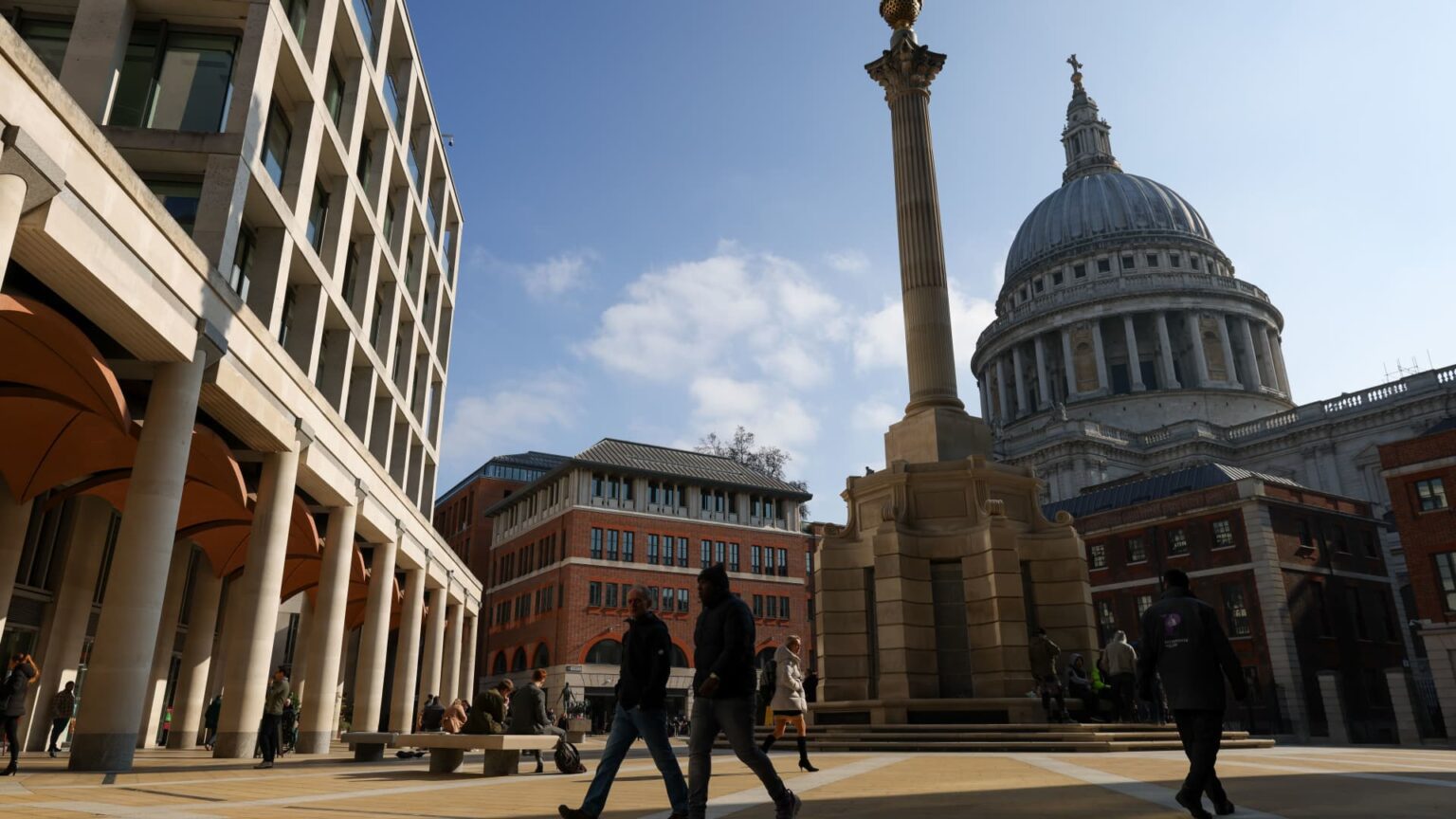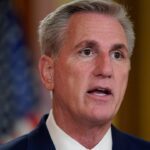Global Courant 2023-04-19 13:08:11
City workers at Paternoster Square, home to the headquarters of the London Stock Exchange, in the City of London, UK, on Thursday, March 2, 2023.
Bloomberg | Bloomberg | Getty Images
UK inflation unexpectedly remained in double digits in March as households continued to struggle with skyrocketing food and utility bills.
The consumer price index rose at an annual rate of 10.1%, according to the Office for National Statistics, above a consensus projection of 9.8% in a Reuters poll of economists.
This is a slight drop from the unexpected jump to 10.4% in February, breaking three consecutive months of declines since October’s 41-year high of 11.1%.
On a monthly basis, CPI inflation was 0.8%, above the Reuters consensus of 0.5% and lower than February’s 1.1%.
The Consumer Price Index including housing costs of own residents (CPIH) increased by 8.9% in the 12 months to March 2023, a slight decrease from 9.2% in February but well above expectations.
Core CPIH, excluding volatile food, energy, alcohol and tobacco prices, rose 5.7% over the 12 months, unchanged from February’s annual increase – which will be a concern for the Bank of England.
“The largest upward contributions to annual CPIH inflation in March 2023 came from housing and household services (primarily from electricity, gas and other fuels), and food and non-alcoholic beverages,” the ONS said in its Wednesday report.
As UK households continue to struggle with high food and energy bills, workers in several sectors have launched massive strikes in recent months over disputes over wages and working conditions.
The ONS said food and non-alcoholic beverage prices rose 19.2% in the year to March 2023, the strongest annual increase in more than 45 years.
UK Chancellor of the Exchequer Jeremy Hunt said Wednesday’s figures reaffirmed why the government should continue its efforts to curb inflation.
“We are on track to do this – with the OBR (Office for Budget Responsibility) forecast that we will cut inflation in half this year – and we will continue to support people with cost of living support worth an average of £3,300 per household during this year and last year, funded by windfall taxes on energy profits,” Hunt said in a statement.
The arduous task of the Bank of England
The Bank of England raised interest rates by 25 basis points to 4.25% last month, and traders estimated a 72% probability of a further quarter-point hike at the Monetary Policy Committee meeting on May 11.
Economists expect the slight drop in March’s overall figure to be followed by a larger drop in April, reflecting the base effects of an energy price hike in April 2022, when the UK’s energy regulator raised its price cap by 54%.
“While core inflation is likely to prove more persistent, pressure on consumer demand from rising taxes and the lagged effect of interest rate hikes should put the rate on track for a solid downtrend by the fall,” said Suren Thiru, economics director at ICAEW. (Institute of Chartered Accountants in England and Wales).
The UK economy was flat in February as widespread industrial action and the ongoing cost-of-living crisis hampered activity, and Thiru suggested the MPC could be more divided on whether or not to raise interest rates further in May, as ” concern is growing about a flattening economy”. .”
Hugh Gimber, global market strategist at JPMorgan Asset Management, said that while headline inflation is moving in the right direction, the central bank is “still far from being comfortable that price pressures are contained.”
“Yesterday’s labor market data clearly showed how tight job markets are driving strong wage growth. The pass-through of today’s inflationary pressures was clear given the strength in wage-sensitive services sectors,” said Gimber.
British unemployment sharp to 3.8% in the three months to the end of February, new data showed on Tuesday, while economic inactivity fell and labor participation also rose more than expected.
“For the BoE, while there is some evidence that the tightness in the job market is easing, particularly with the continued fall in job vacancies, the job market remains generally tight,” said Victoria Clarke, chief UK economist at Santander CIB.
“The latest report offers no reassurance that the MPC is likely to look for a moderation in wage growth towards rates consistent with the BoE inflation target.”
While stabilizing energy prices will help curb inflation in the second half of the year, JPMorgan’s Gimber said it is “increasingly clear” that an extended period of low economic growth will be needed to curb core price pressures.
“Another 25 basis point rate hike looks very likely in May, and the Bank should be ready to take further action unless economic data shows more definite signs of cooling,” he said.
“Policymakers have come a long way in their fight against inflation. In the future, the biggest mistake would be to claim victory prematurely.”








